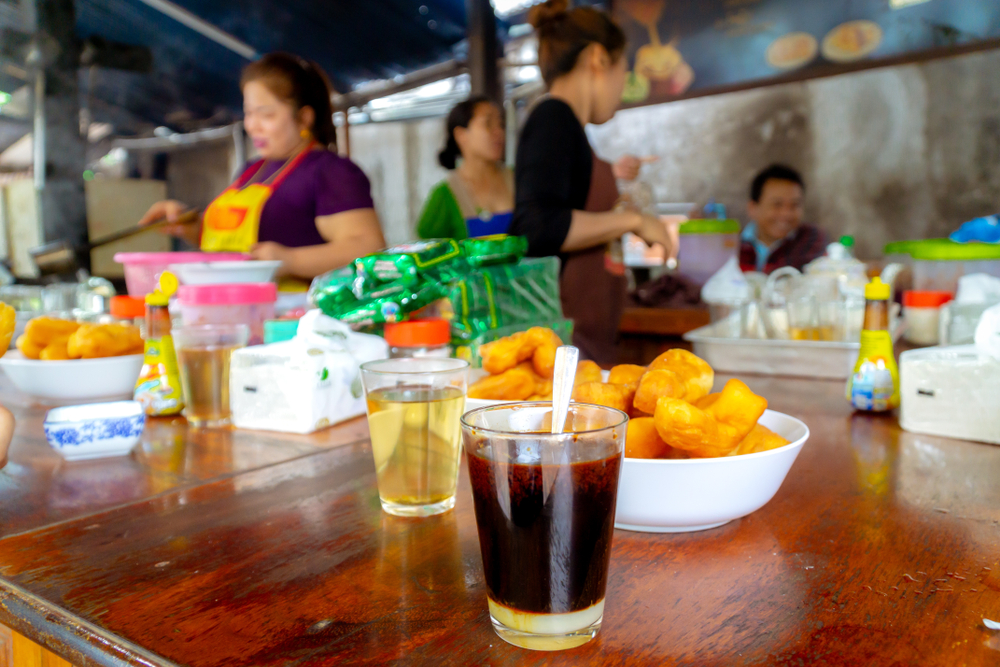Thai health officials are urging citizens to avoid consuming popular local breakfast items, fried dough sticks called “Pa Thong Ko” and Thai iced tea.
The Thai Department of Health released a health advisory on the two local items. It comes after the two dishes made it into the top ten ranking on TasteAtlas. TasteAtlas is an online travel guide that focuses on food and provides recommendations from culinary professionals around the world. According to the Department of Health, consuming these foods can provide too much energy and negatively affect health. People often consume Pa Thong Ko, a crispy, deep-fried dough stick, with sweetened condensed milk and coffee.
Director-General of the Health Department, Dr Suwanchai Wattanayingcharoenchai, advised people to avoid fast food that provides excessive energy or that needs to be fried repeatedly. He explained that Pa Thong Ko contains 441kcal, 40.56g of carbohydrates, and 27.79g of fat per 100g. A pair of medium-sized Pa Thong Ko sticks, which weigh around 30g, contains 132 kcal, 12g of carbohydrates, and 8g of fat. The snack also contains a high level of sodium from baking soda or salt. Therefore, it is unsuitable for those with an overactive thyroid and high blood pressure. Moreover, as it is typically deep-fried in recycled cooking oil, which could lead to cancer, it is recommended not to consume more than two pairs of fried dough sticks per day.
Additionally, research has shown that Thai iced tea can be harmful to one’s health. Dr Suwanchai explained that a 200ml serving of Thai iced tea contains 69g of carbohydrates, 15g of fat, and 53g of sugar. This amounts to around 13 teaspoons and can produce 430kcal. The human body should consume no more than six teaspoons of sugar daily. Consequently, excessive intake of Thai iced tea can lead to diabetes, cancer, high blood pressure, obesity, and cardiovascular and cerebrovascular diseases.
Thai people have traditionally consumed a high-carbohydrate diet that often includes noodles and sugary drinks. Subsequently, this has led to rising levels of obesity, diabetes, and other related diseases. Officials from the Thai Department of Health have been actively educating the public about healthy eating habits. They have also encouraged them to engage in physical activity often. They remind people that they must exercise to burn off the energy gained from eating. In addition, they must maintain a healthy diet. This study considers more than 40% of Thai adults overweight or obese.














